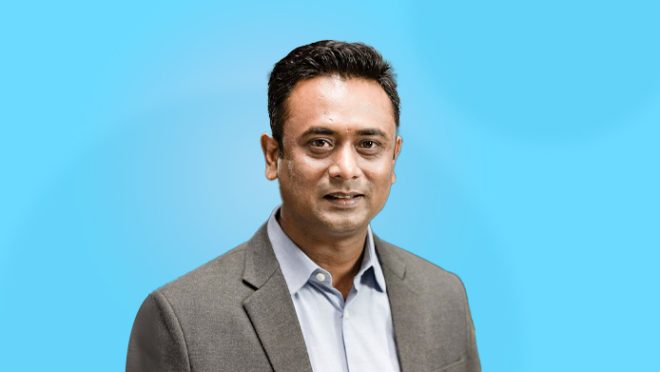From newsroom to advocacy: A conversation with Rafe Sadnan Adel on journalism and strategic communications
From newsroom to advocacy: A conversation with Rafe Sadnan Adel on journalism and strategic communications

As media and communications intersect in today’s fast-paced information landscape, Rafe Sadnan Adel’s career exemplifies the potential of journalistic skills in shaping impactful narratives.
With nearly two decades in journalism and a recent pivot to communications leadership, Adel has crafted a unique professional path without sacrificing his commitment to meaningful storytelling.
Currently serving as the Director of Public Relations at North South University and a Board Director for the World Ovarian Cancer Coalition, he shares his journey—from frontline journalism to global advocacy—and offers insights for those seeking similar transitions.
Q: Can you tell us about your early days in journalism? What drew you to the field, and how did those first experiences shape your career?
Adel: My journalism journey began in 2008 when Transcom Group, which owns Prothom Alo, launched ABC Radio, Bangladesh’s first news-based FM station. I joined as an outdoor broadcaster, tasked with delivering market and traffic updates. It was an exciting period as we introduced a new format to listeners. My passion for real-time information developed then, and in 2009, I encountered serious journalism while covering the BDR rebellion. Reporting live on such a critical event was intense but incredibly rewarding. That experience highlighted the responsibility journalists hold and deepened my dedication to the profession.
Q: You’ve worked with several prominent media organizations. How did each of these experiences contribute to your growth?
Adel: Each role brought unique challenges and learning experiences. After ABC Radio, I interned at BBC World Service Trust and then joined BanglaNews24, gaining hands-on experience in online news. My television career took off at ATN News and matured at Somoy TV, where I saw firsthand the influence of visual media in shaping public perception. Later roles at Ekattor TV, Channel 24, and ETV further broadened my skill set as I covered everything from live reporting to news presentation. These diverse roles honed my ability to convey complex stories in a relatable way. The fast-paced newsroom taught me to balance speed with accuracy, an invaluable skill in every position since.
Q: What prompted your shift from journalism to communications, particularly with an organization like BRAC?
Adel: The transition was a leap of faith but a calculated one. A friend suggested I consider communications, and though I hesitated at first, the idea intrigued me. After years in journalism, I was open to a fresh challenge. Joining BRAC’s communications team allowed me to utilize my journalism skills to support the organization’s mission. Both fields share a focus on understanding people and delivering resonant messages. In communications, I was able to apply my experience to advocacy, using storytelling to bring attention to important issues such as poverty and crisis response. It was a shift that offered a new sense of fulfillment.
Q: How did your journalism skills translate to communications?
Adel: Surprisingly well. Journalism taught me to simplify complex topics and communicate them effectively—key skills in communications. Transitioning to BRAC, I already had experience connecting with diverse groups and crafting engaging messages. My network of media contacts also became a significant asset, as advocacy requires a keen understanding of these relationships. Journalists possess a natural edge in communications since we’re trained to understand people’s needs and adapt messages accordingly. Instead of learning a new field, it felt like applying familiar skills to a new purpose.
Q: Moving from BRAC to North South University, what unique aspects do you find most engaging in working in higher education?
Adel: Working in a university setting is invigorating. Universities are dynamic environments filled with research and initiatives that impact society. In my current role, I get to spotlight the impressive work of our students and faculty. Showcasing academic achievements and groundbreaking research aligns with my passion for impactful storytelling, and it contributes to knowledge-sharing and national development. The focus here is more on long-term growth, but the essence of storytelling remains. It’s fulfilling to promote stories that build a legacy of learning and advancement.
Q: For those looking to transition from journalism to communications, what advice would you offer?
Adel: Prioritize your storytelling abilities. Regardless of the field, clear and compelling messages are essential. For journalists moving into communications, know that your skills will transfer well, as both areas value authenticity and clarity. Build a strong network and stay curious; a communications role can offer creative ways to apply your journalism skills. Embrace every learning experience, be it a challenging story, a new project, or a mentor relationship. Curiosity fuels growth and creativity, both crucial in succeeding in either field.
Q: Reflecting on your career, is there anything you would do differently?
Adel: Honestly, I wouldn’t change a thing. Every step in journalism and communications has been a valuable lesson. Journalism grounded me in real-world issues, while communications expanded my influence in shaping narratives on a larger scale. Both fields complement each other, creating a career that feels fulfilling and balanced. I’m grateful for the journey that has led me here.


